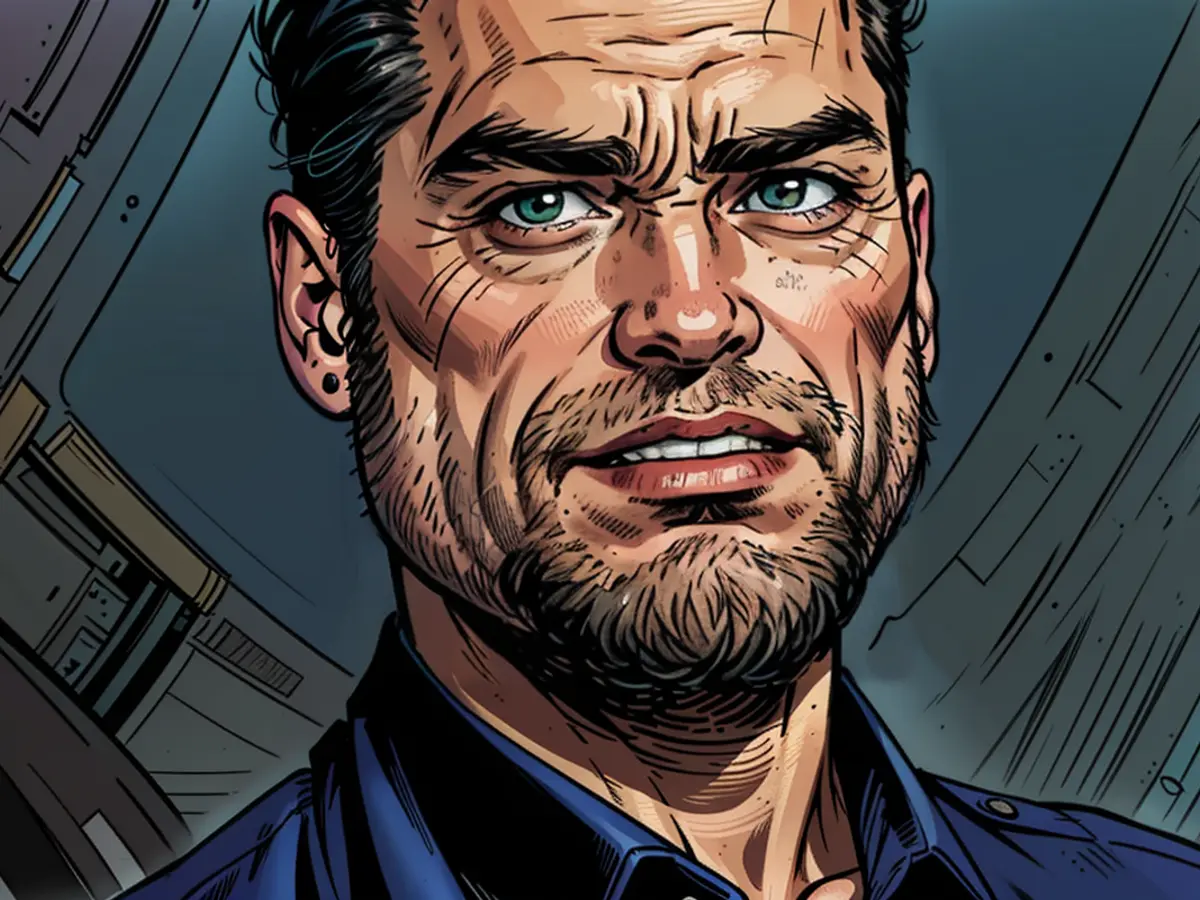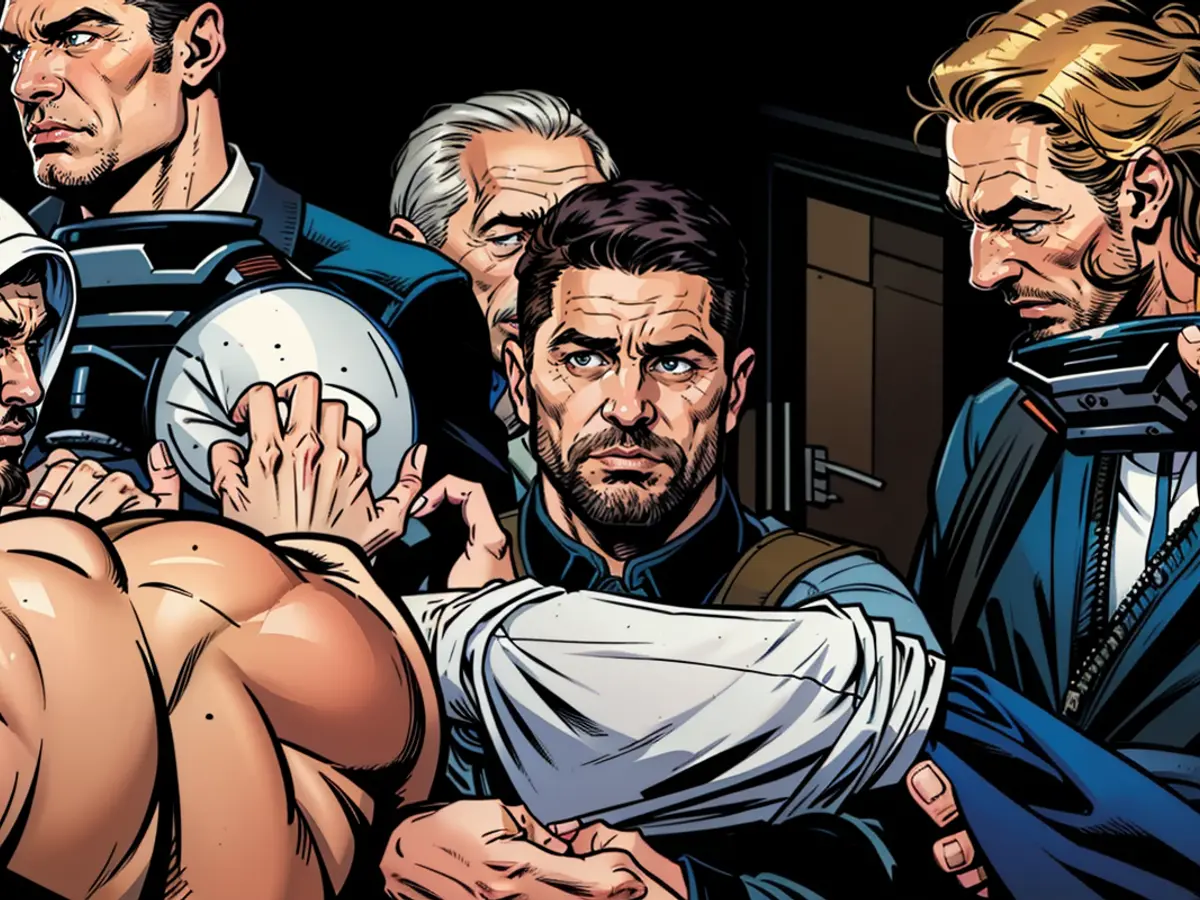Putin's attack on the children's clinic was a message to NATO
*In the past week, Russia attacked a children's clinic in Kiev - a hostile greeting from Moscow to Washington, analyzed Rafael Loss for ntv.de. Since then, the NATO has found itself in a changed threat situation. Can it adapt to this new situation?
ntv.de: The NATO is finding itself in a changed threat situation since the beginning of Russia's full-scale invasion in Ukraine. Will it be able to adapt to this new situation?
Rafael Loss: The NATO needs to change, this has been the case since 2014 when the Ukrainian conflict began and has picked up momentum again. In response, Washington has made some decisions that have further fueled this momentum. The US plans to station land-based intermediate-range missiles in Germany starting in 2026. This has not happened since the end of the Cold War.
So, the NATO aims to increase Europe's defense capability against Russia. But do these missiles also serve as a message to Putin, showing strength?
Yes, these new weapons are a signal of strength to Putin.
How did Putin respond to that?
One thing is certain: Putin and the Kreml have sent signals to the NATO. One with the attack on the children's hospital in Kiev, another with the arrest warrant against Julia Navalny, the wife of Kreml critic Alexei Navalny. These were Putin's messages to the NATO.
With the content: "You can't stop me"?
Exactly. Looking back at the Munich Security Conference in February, the news of Navalny's death was essentially announced on the stage. In this sense, Putin saw the need to send signals to the world that he is doing what he wants in Ukraine - the NATO can do nothing about it. The member states want to counter this narrative with the stationing of these medium-range missiles in Germany.
Putin reacted quite promptly to this.
The immediate criticism, almost hysteria, that unfolded in Moscow over this missile decision shows us that we are on the right track.
The Kreml called the missiles a "chain in the escalation process". Does the NATO enter a new level of deterrence in Europe with this?
The Kreml deliberately overlooks the fact that it itself has had such weapons in its arsenals for a long time. The US and Russia signed a treaty in the 1980s that prohibited both parties from producing or possessing ground-launched intermediate-range missiles. In 2019, the NATO discovered that Russia had violated this treaty. It had developed and deployed such weapons. In response, the US officially withdrew from the treaty. With the stationing of intermediate-range missiles in Germany, the NATO is now reacting to Russia's earlier decision to produce and deploy such weapons and to its invasion of Ukraine. Without these two factors - treaty violation and invasion - Germany would likely not have agreed to this future stationing.
In other words: The Kreml had "escalated" much earlier?
Yes, the escalation accusation is misleading. Similarly misleading is the announcement that the NATO will react to the missile stationing with new weapons development. This weapons development has already taken place, and Russia has already deployed these weapons. Moreover, Russia's missiles can be equipped with nuclear warheads. The missiles planned to be stationed by Germany and the US are purely conventional. The NATO has no intention of promoting nuclear arms racing.
Given the NATO's intention to confront Putin, we can make a hook in the Ukraine issue. How does it look?
A huge difference from the previous summit in Vilnius is that NATO managed to avoid an open conflict this year. Through preparation, expectation management, and making known in advance what would be in the final document. This meant that there were no major surprises for journalists and think tanks.
Was was there for Ukraine as well, wasn't it already known that they would not receive an invitation to a membership process?
Yes, and regarding new weapons pledges, the summit result is rather meager. The additional Patriot system announced by US President Biden was already known, and Germany had publicly announced the IRIS-T SLM systems for air defense beforehand.
Why wasn't NATO Secretary-General Jens Stoltenberg able to secure a commitment of €100 billion for Ukraine aid over several years?
Stoltenberg's plans gradually evolved into a willingness to maintain the current level in the coming year and then reassess. In some NATO countries, multi-year commitments, as originally proposed by Stoltenberg, face budgetary hurdles. As a result, the desired stabilization was not achieved, and the €40 billion agreed upon for the coming year is not additional money or additional effort. This is the summary of what individual NATO countries will give to Ukraine in the coming year. At least, there is a distribution key in the final document to allocate the burdens.
How has the structure of Ukraine aid otherwise changed?
NATO allies are trying to shift the burden of support from the US to other members or the alliance as a whole. The Ramstein Format will remain as a political decision-making forum. However, all that the US military has coordinated in terms of logistics, training, and the creation of a joint analysis, training, and education center in Poland will in the future be handled by NATO. This includes a joint analysis, training, and education center in Poland. The goal is to be able to handle such tasks without US involvement if Trump wins the election.
Has this goal been achieved?
According to Jens Stoltenberg, the summit in Washington showed how important the continued existence of NATO is for the US. On the one hand, there are now 23 member states that contribute two percent or more of their economic output to defense. This translates into capabilities. Another factor is the high support for NATO in democratic and republican circles. The same applies to the Congress.
How did this support concretely manifest?
In individual meetings, members of the US Congress assured Stoltenberg that they are aware of the value of NATO for the US. Representatives from both parties in the Senate and House of Representatives held numerous meetings with allied government leaders and ministers. Mike Johnson, the Republican Majority Leader who had long delayed the last major support package for Ukraine in the Congress, met with Ukrainian President Volodymyr Zelensky. I didn't expect that, and that would have been quite unlikely a few months ago for Johnson to be so exposed in the face of critics from his own ranks.
What else could have been achieved on the way to Trump resistance?
Fundamentally, the USA cannot be replaced in the context of NATO. Not as political leadership and not in terms of military capabilities, especially when it comes to strategic capabilities. However, the burden can be redistributed, so that European countries bear the main responsibility for defense and security in the Euro-Atlantic area. This is a matter that has troubled not only Donald Trump as US President, but also many presidents before him. It took the largest war in Europe since 1945 for us to start taking this task seriously.
For Joe Biden, the summit was okay, but not optimal. He made some promises distributed over the summit. NATO officially supports him fully. But what was discussed on the lawns at the Congress Center?
Internally, there are already doubts. But publicly, some democratic senators and congressmen expressed during the summit that Joe Biden should drop out of the race. This was against the agreements, to make such statements after the summit. There were such agreements, to keep the alliance in a better light. These statements have fueled the debate even further. It is a matter for the Democratic Party to make a decision. The election ultimately lies with the American voters. Europeans must come to terms with the result, whatever it may be in November.
Interview with Rafael Loss spoke Frauke Niemeyer
- The attack on a children's clinic in Kiev by Russia has led to a changed threat situation for NATO, requiring adaptation.
- Given the new situation, the NATO aims to increase Europe's defense capability against Russia, with the US planning to station land-based intermediate-range missiles in Germany starting in 2026.
- The two-percent NATO goal, which aims for member states to contribute two percent or more of their economic output to defense, has been a topic of debate in politics, with 23 member states currently meeting this goal.
- Joe Biden and Jens Stoltenberg, respectively the US president and NATO secretary-general, have discussed the issue of weapon deliveries to Ukraine during the summit, with Stoltenberg pushing for a commitment of €100 billion over several years, but facing budgetary hurdles in some NATO countries.









